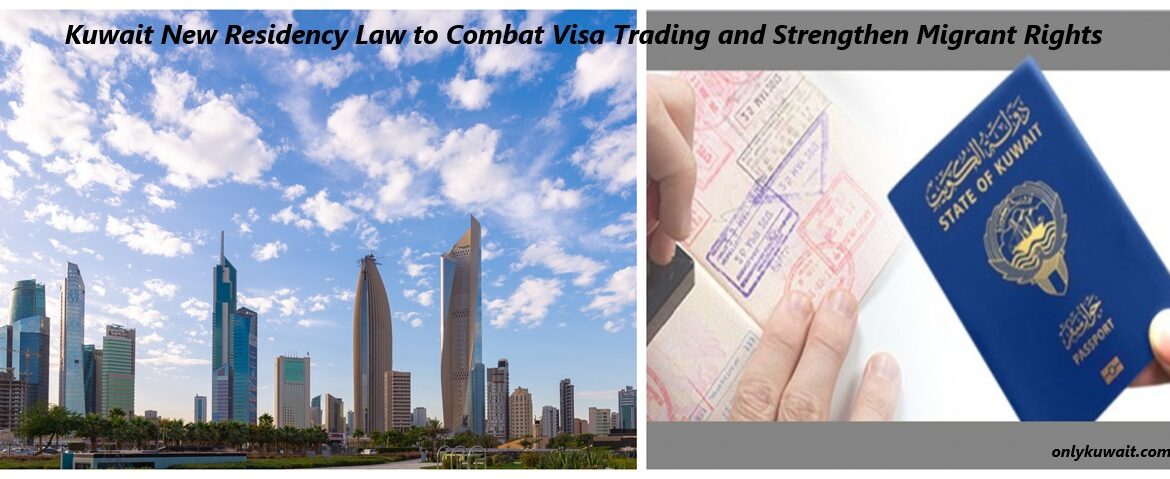New Residency Law to Combat Visa Trading and Strengthen Migrant Rights
Kuwait has recently introduced a new residency law. This law aims to combat visa trading and protect the rights of migrant workers. The new regulations replace an old system that had been in place for over 60 years. The changes designed to modernize immigration policies in Kuwait. They also focus on improving the living and working conditions for expatriates. This article provides the details of the new residency law, its implications for migrant workers, and how it aims to create a fairer system in Kuwait.
Overview of the New Residence Law
The new residency law was issued via Amiri decree on November 28, 2024. It introduces several important changes to the immigration system in Kuwait. Children of Kuwaiti women can now obtain a renewable 10-year residency without fees. The law imposes strict penalties for individuals involved in visa trading or illegal residency practices. These features aim to provide stability and security for families while addressing critical issues in the immigration system.
The new law also improves family visa rules. Family visit visas have been extended to three months. The waiting period to bring in new domestic workers has reduced from six months to four months after the departure of the previous worker. These changes make it easier for families to stay connected and ensure that domestic workers can hired more efficiently.
Addressing Visa Trading and Exploitation
Visa trading has been a significant issue in Kuwait. The previous system allowed some employers to exploit migrant workers. Visa trading involves individuals or companies selling visas illegally or providing false information to obtain residency permits. This practice often leads to exploitation and abuse of migrant workers.
The new residency law introduces strict penalties for those involved in visa trading. Individuals caught engaging in visa trading may face heavy fines and imprisonment. Employers must ensure that their workers are not employed by unauthorized parties. These measures aim to deter illegal activities and protect vulnerable workers.
The law strengthens measures against human trafficking and worker exploitation. The new regulations align with international standards for protecting migrant rights. Authorities will increase monitoring of workplaces to prevent exploitation. This focus on protection helps ensure that migrant workers are treated fairly and humanely.
Impact on Migrant Workers
The new residency law expected to have a positive impact on migrant workers in Kuwait.
- With stricter regulations, working conditions for expatriates are likely to improve. Migrant workers will have better protections against abuse from employers. Workers will have more access to legal support if they face exploitation. These changes help create a safer environment for all workers.
- The law enhances the rights of expatriates living in Kuwait. The government plans to conduct campaigns to raise awareness about migrant rights. New support services will established to assist migrant workers with any issues they face. These initiatives empower expatriates by informing them of their rights and available resources.
- The introduction of long-term residency options is a significant step forward for many families. Families can now enjoy more stability with longer residency permits. Longer residency permits reduce the fear of sudden deportation, allowing families to settle down more comfortably. This stability is crucial for building a life in a foreign country.
Conclusion
Kuwait’s new residency law represents an important step towards modernizing its immigration system. By regulating visa trading and enhancing protections for migrant workers, the country is taking significant strides toward creating a fairer environment for expatriates. The introduction of long-term residency options and improved family visa regulations further supports this goal. As these changes take effect, it is essential for both employers and employees to understand their rights and responsibilities under the new law. With ongoing efforts to raise awareness about migrant rights, Kuwait aims to build a more inclusive society where all residents can thrive. This initiative not only benefits migrants but also contributes positively to Kuwait’s economy and social fabric, improving a culture of respect and dignity for all workers.
